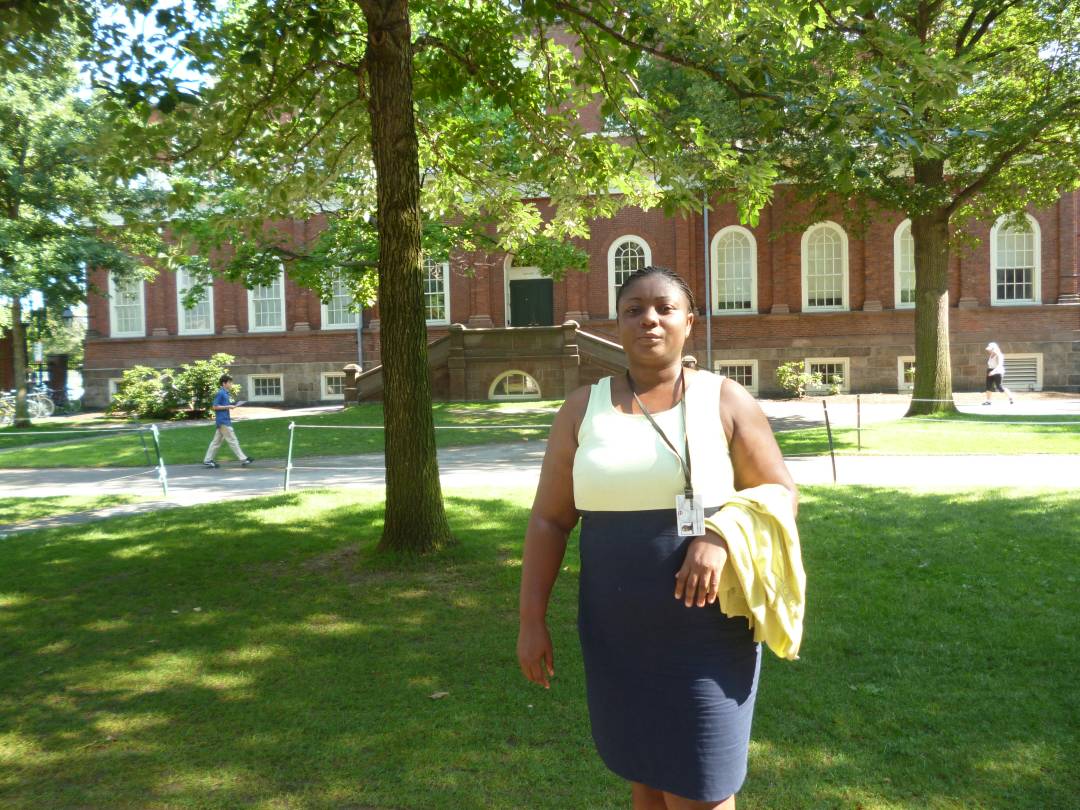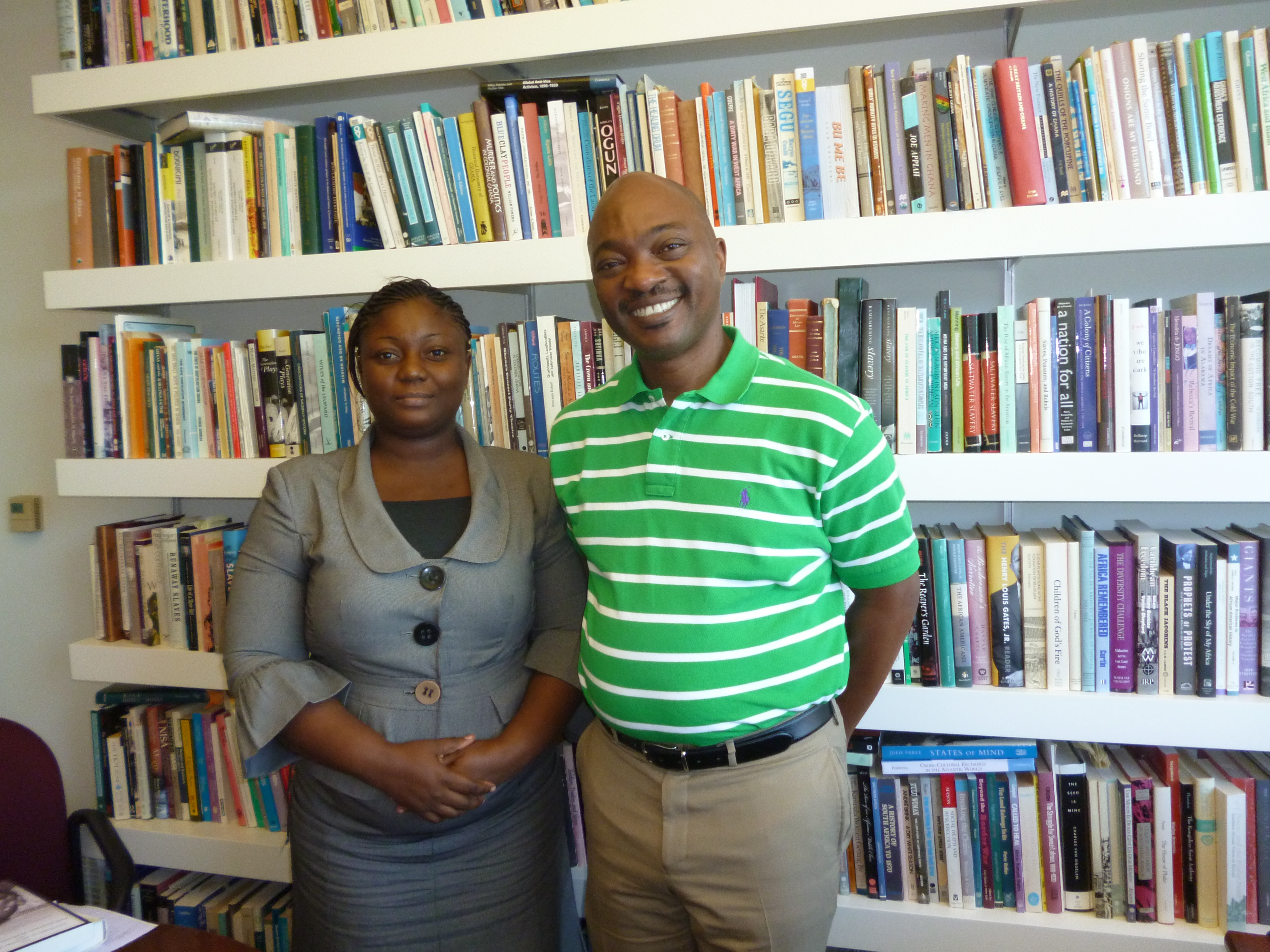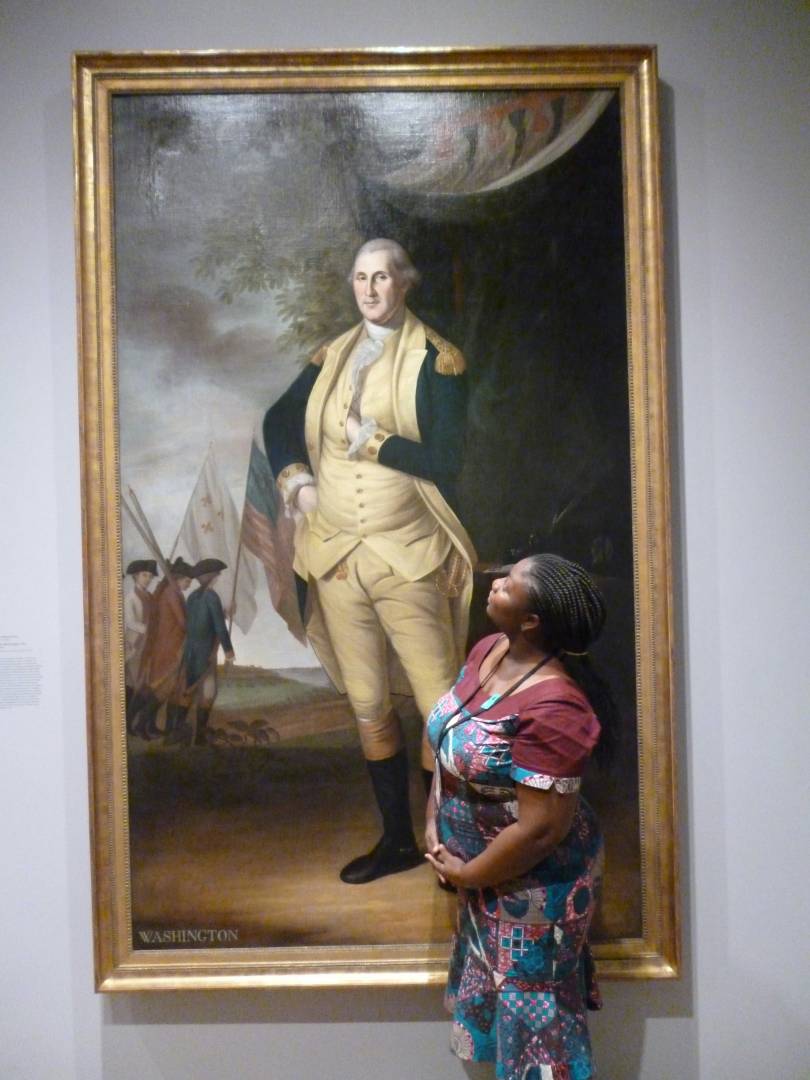

CALL FOR PAPERS
Journal of West African History, Volume 5, Issue 2 (October 2019): Special Issue: 60th Anniversary of Ghana and Nigeria Independence
Founding Editor-in-chief: Nwando Achebe
Associate Editors (Manuscripts): Assan Sarr and Ibra Sene
Associate Editor (Book Reviews): Harry Odamtten
2017 and 2020 mark the 60th anniversaries of independence from British colonial rule in Ghana (1957) and Nigeria (1960). In honor of these momentous occasions, the Journal for West African History (JWAH), published by Michigan State University Press, invites scholars to submit papers that commemorate the 60th anniversaries of the independence of Ghana or Nigeria. We are particularly interested in papers that speak to the aspirations, achievements, setbacks, and problems associated with independence and its aftermath. Please see submission guidelines for detailed expectations. Manuscripts should be submitted online at http://ojs.msupress.msu.edu/index.php/JWAH/about/submissions The deadline for the receipt of papers is April 30, 2018. All articles will undergo a double blind peer review, and those accepted for publication will appear in a special issue of JWAH, volume 5, issue 2, scheduled for publication in October 2019.
The Journal of West African History (JWAH) is an interdisciplinary peer-reviewed research journal that publishes the highest quality articles on West African history. Located at the cutting edge of new scholarship on the social, cultural, economic, and political history of West Africa, JWAH fills a representational gap by providing a forum for serious scholarship and debate on women and gender, sexuality, slavery, oral history, popular and public culture, and religion. The editorial board encourages authors to explore a wide range of topical, theoretical, methodological, and empirical perspectives in new and exciting ways. The journal is committed to rigorous thinking and analysis; is international in scope; and offers a critical intervention about knowledge production. Scholarly reviews of current books in the field appear in every issue. And the publication is in both English and French; an abstract in both languages is provided.
Mardi 06 Février 2018, à 15 heures
Projection du Film: SELMA (2 h)
WARC, Dakar, Senegal
Synopsis : Selma retrace la lutte historique du Dr Martin Luther King pour garantir le droit de vote à tous les citoyens. Une dangereuse et terrifiante campagne qui s’est achevée par une longue marche, depuis la ville de Selma jusqu’à celle de Montgomery, en Alabama, et qui a conduit le président Johnson à signer la loi sur le droit de vote en 1965.
Le film sera présenté et commenté par le Prof Ousmane Sène, Directeur du WARC.
NB : Le film dure 2 heures. Donc la diffusion commence à 15 heures 20 minutes au plus tard.
Hosted by Afrimerican Culture Initiative Inc. and Africans in Boston, at the MFA, Wednesday, February 7 at 6 PM – 9 PM
Hosted by the Radcliffe Institute for Advanced Study, Harvard University, Wednesday, February 7 at 4 PM
Film Showings hosted by Boston University’s African Studies Center and BU African Studies Library:
February 21st: Viva Laldjerie, help at BU’s Mugar Library in the Estin Room, 5:30 PM
February 26th: Asmarina, held at BU’s African Studies Center, Room 505, 5:30 PM
These lectures are held every Monday, at BU’s African Studies Center, Room 505 12:20 PM – 2:05 PM
This Monday, join us for a lecture by Ibrahim Sundiata on “Trump, Oil and Jesse: African Americans and the Lure of Black Gold.”

On October 11th, 2017, WARA and Boston Unviersity’s African Studies Center had the pleasure of welcoming Professor Aliou Cissé Niang, of Union Theological Seminary, to discuss his paper “Religious Messengers and Identity Construction in the Bible and Diola Faith Traditions.”
Religious messengers have the power to effect change, shape community identity and innovate their respective faith traditions–for good or ill. Transcending the historical, cultural and linguistic distance, the religious messages of the Apostle Paul and Aline Sitoé Diatta, a West African Diola religious leader, depict them in such a role. This paper reads four poems of Aline Sitoé Diatta who created and inspired a communion of equals under the watchful eyes of imperial France.
This lecture is a part of the ongoing lecture series hosted by WARA, “Religion in West Africa.” Learn more by checking out other videos on our channel and subscribe for the latest! Find out more about WARA here: http://www.bu.edu/wara/about/
Intro + Q&A
[youtube https://www.youtube.com/watch?v=Bjbo6qLPpgU]
Lecture:
[youtube https://www.youtube.com/watch?v=p-Z3vmkNB1g]
Thank you to everyone who submitted applications for the WARC Travel Grant this summer. We received an abundance of excellent proposals and regret that we are unable to fund more of them.
Agblegoe Benigan (Université de Lomé, Togo), “Essai sur le régime juridique de la lutte contre le terrorisme en droit international: Cas de L’UNION AFRICAINE”
Are Elisha Bayode (University of ILorin, Nigeria), “Modelling the impact of counterfiet drugs on the control of MALARIA-TYPHOID co-infection in Nigeria”
Elh Moudi Moustapha (University of INRAN, Niger), “Amélioration de la productivité agricole en zone sahélo saharienne comme alternative à la crise alimentaire, par la redynamisation du recyclage des nutriments des sols dégradé ; cas des sols sableux de la région Sud-Est du Niger”
Oboh Mary (Université Cheikh Anta Diop, Dakar, Senegal), “Immunologic and Genetic correlates of protective immunity of SERA-5, PfRH5, and MSP-3 vaccine candidate antigens among infectious populations of Nigeria and its implication for malaria vaccine development”

WARA is proud of the accomplishments Dr. Fallou Ngom has made in his efforts to increase research on Ajami, the Arabic script that is adopted to many African languages as a form of written communication over many centuries. His latest book, Muslims beyond the Arab World: The Odyssey of Ajami and the Muridiyya (Oxford University Press, 2016), has been named the most important scholarly work in African studies at this year’s African Studies Association 60th Annual Conference held at the Chicago Marriott Downtown in Chicago, Il. It is this work in particular that had Ngom named the awardee of the prestigious Melville J. Herskovits Prize.
Check out this article from BU about Ngom’s accomplishments here.
Veuillez en lire plus sur les accomplissements de professeur Ngom dans cette article du Soleil, écrit par Pr Ousmane Sene, ici.
Do not miss this amazing event,
A culinary stay in Senegal with the brilliant Chef Pierre Thiam
January 31- February 11, 2018.
Hosted by the West African Research Association
617-353-8902
wara@bu.edu
For more information, click here.
Applications for the 2018 WARA Fellowship competition are now open! Applications found here! The submission deadline is February 1, 2018.
The WARA Pre-Doctoral Fellowship is open to U.S. citizens who are currently enrolled in graduate programs at institutions of higher education in the United States to conduct research in West Africa during the summer of 2018.
The WARA Post-Doctoral Fellowship is open to U.S citizens already holding a Ph.D. who are currently affiliated with an academic institution or who work in another related domain and would like to conduct research in West Africa.
The WARC Library Fellowship is designed to provide experience in West Africa for practicing librarians and for the next generation of Africana librarians. Open to U.S citizens, this fellowship provides round trip travel to Dakar and a stipend of $2,500 to cover the cost of living during the summer of 2018.
The WARA Residency Fellowship offers residencies for WARA member institutions to host a West African Scholar on their campus.
Funding for this activity provided by the Bureau of Educational and Cultural Affairs of the U.S. Department of State through a grant from the Council of American Overseas Research Centers.

(Ms. Adjoh-Davoh at Harvard University)
My name is Valerie Delali Adjoh-Davoh. I am a Doctoral candidate at the Department of History, University of Cape Coast. The title of my research is “Pawnship in the Gold Coast Colony: Pawn Child Labour in the Period of the Cash Crop Revolution 1874-1940”. The thrust of the research is that market forces after abolition of domestic slavery in 1874 coupled with the introduction of cocoa in the 1890s intensified the use of pawn children in production and export of cocoa until the establishment of Ghana’s Cocoa Marketing Board in 1938. In addition, the work gives understanding to the present use of children in cocoa production in order to curtail it due to the International Labour Organisation’s laws to eliminate the worst forms of child labour in developing countries by 2016.
My fellowship abroad was to conduct research at Harvard University libraries which included: the Houghton library and the Harry Elkins Widener Memorial Library. Also, the fellowship was intended to collaborate with Professor Emmanuel Akyeampong and other scholars interested in forms of unfree labour which included pawnship.
I arrived in Boston on July 2, 2017 where I was warmly received by the fellows and events officer, Rosaline Salifu, of the Harvard Center for African Studies. Since I arrived on a Sunday and July 4, 2017 was a public holiday I had to settle in and formally report to Harvard Center for African Studies on July 5, 2017. I met with my faculty sponsor, Professor Emmanuel Akyeampong, on July 6, 2017. We discussed issues regarding publication of my work when completed, introduction of researchers or scholars in the area of unfree labour, requirements for international publication of both books and articles, and my use of the Harvard University libraries. Also, Professor Akyeampong made useful contributions to my work since he is an expert on forms of unfree labour.

(Ms. Adjoh-Davoh met Prof. Akyeampong on July 6th, 2017)
Through the fellowship I was able to obtain over fifty books and articles from the use of the Harvard University libraries. These included literature on anti-slavery movement, abolition and the end of slavery, pawning among the Fante of the Gold Coast, and child labour. Harvard University also has a franchise which allows its researchers to access dissertations world Wide via ProQuest dissertation in my area of study which hitherto were unavailable to me. These materials will go a long way to enrich my dissertation, later research and teaching generally.
The Harvard University online Archive was useful in gathering pictorial representations of some events in the Gold Coast. These pictures reflected events such as the 1874 Anglo-Asante War, colonialism, Market setting in Cape Coast in the colonial period, female fashion, and Fetishism during wars.

(Ms. Adjoh-Davoh at Harvard Art Museums)
I benefited from my visit to the Harvard Art Museum. At the Harvard Art Museum I had the opportunity of being taken through various artifacts on Africa, the Muslim world, Christianity and other world religions. I was provided with firsthand information on most of the cultures which gives a better understanding to the theoretical aspects of what I knew about other world religions.
Also, I had access to primary materials from the African Studies library within the Mugar Memorial Library, Boston University particularly on Ghana which is useful for my present research as well as later research and study. The primary materials ranged from topics on Ghana’s Cocoa Marketing Board and cocoa in general, Cocoa hold up in the Gold Coast, cocoa co-operatives, child rights in Ghana, agriculture in Ghana, land tenure and Gold Coast annual reports from 1918 to 1954. Besides, these primary materials could be used for many other researches on Ghana.
As a result of the fellowship, I was introduced to a number of scholars in my field of research by Professor Emmanuel Akyeampong. These scholars are Professor Sandra Elaine Greene who is an expert on Ghana, Professor Gareth Austin who has researched extensively on Ghana and forms of unfree labour, and Professor Trevor Getz who has researched extensively on unfree labour after abolition in the Gold Coast. These professors provided useful suggestions to my research which I believe will go a long way to enrich my dissertation and later research.
Further, I was introduced to new primary research sources by my Faculty sponsor such as the Basel Mission Archives online that he compiled in the past to supplement the primary sources which were already available to me on pawnship. The Basel Archives online are especially useful since there are limited sources on pawnship and other forms of unfree labour in the Gold Coast in particular.
In addition, I received a compiled course pack as a gift from my research which to me was his demonstration of his commitment to see others excel and a mark of a good mentor which everyone would want to have in the early stages of their career.
On July 11, 2017 I visited the West African Research Association’s office at Boston University. I met Professor Jennifer Yanco (the immediate past Director of WARA) and Caroline Johnson (the Operations Manager of the West African Research Association). An interview was then conducted on my research and we deliberated generally on child labour. The interview conducted has given me some exposure and recognition regarding my research which I believe will open other opportunities in the future.
Thank you very much to Professor Emmanuel Akyeampong (Oppenheimer Chair of the Harvard Center for African Studies) for inviting me. I greatly appreciate his mentorship and suggestions to see my work progress. Also, I greatly appreciate the support of the staff of the Harvard Center for African Studies in their professionalism in handling my Harvard Id issues and having a fruitful research visit.
Finally, I am very grateful to the West African Research Association for the fellowship to conduct research at Harvard and Boston University libraries as well as collaborate with experts in my field of research. I believe the fellowship is a stepping stone to greater heights in my career as a lecturer and researcher. Therefore I am eternally grateful for the opportunity.